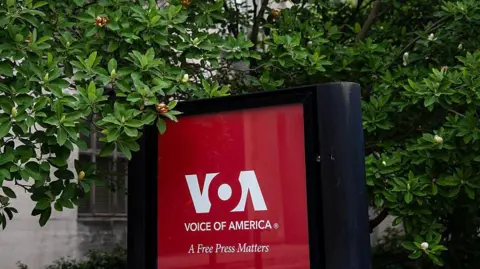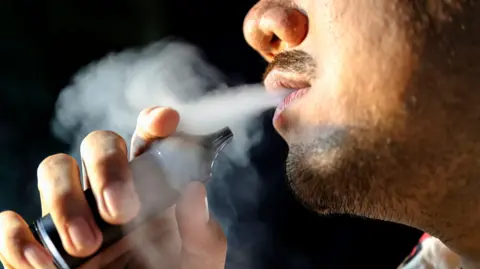The potential danger of nitrous oxide is drawing increasing attention in the United States, as disturbing trends emerge around its recreational misuse. Commonly referred to as "laughing gas," nitrous oxide is a chemical with varied applications, from medical anesthesia to its use as a propellant in whipped cream dispensers. Yet, its euphoric effects have increasingly seduced users, particularly amid the rise of vaping and innovative marketing strategies, leading to troubling addiction patterns.
The tragic case of Meg Caldwell exemplifies this issue. At 29, Caldwell succumbed to an accidental nitrous oxide overdose in a parking lot, navigating through a cycle of addiction that escalated since her university days. Her sister, Kathleen Dial, reflected on how readily accessible the gas seemed, often available in local smoke shops. Caldwell’s journey illustrates how many young people, particularly during the pandemic, may inadvertently spiral from casual use to severe addiction. The Annual Report of America's Poison Centers recently indicated a 58% surge in intentional nitrous oxide exposure cases between 2023 and 2024.
The implications for users' health can be dire. Chronic inhalation risks include hypoxia, vitamin B12 deficiencies, and potentially lethal consequences. Furthermore, data from the CDC indicated a significant rise in deaths connected to nitrous oxide, with figures more than doubling from 2019 to 2023.
In response to the rising tragedy associated with nitrous oxide, some countries, like the UK, have instituted full bans on recreational possession of the gas. However, in the U.S., its use remains legal, particularly for culinary purposes, creating a perplexing regulatory environment. While areas like Louisiana have enacted strict bans, other states permit its sale, particularly packaging aimed at attracting a younger demographic. Critics argue that branding, such as "Galaxy Gas" or "Miami Magic," enhances allure and encourages misuse.
Despite these concerns, companies contend that they provide nitrous oxide solely for legitimate culinary intent and assert responsibility by placing warnings about misuse on their platforms. Social media influencers and artists, along with viral trends, have further popularized nitrous oxide use, sparking conversations about potential accountability for companies marketing the substance.
TikTok has begun mitigating this situation, blocking searches associated with nitrous oxide and directing users to resources related to substance use and addiction. Meanwhile, high-profile figures including rapper SZA have voiced concerns about the substance, labeling it as harmful, particularly to vulnerable youth.
In a noteworthy legal development, the family of Marissa Politte, a victim of a vehicular assault by a driver under the influence of nitrous oxide, successfully sued a distributor for significant damages. Similar case trends indicate a troubling pattern of legal culpability tied to the manufacturing and distribution of the gas.
As the discussion unfolds, Meg Caldwell’s family has stepped forward, seeking class action status against nitrous oxide distributors. They aim to remove it from retail spaces, reflecting a growing sentiment that the gas, while legally permitted for some uses, poses substantial risks when misused. Dial articulated a poignant argument: the contrast seen in training for medical use of nitrous oxide versus ease of retail availability demonstrates a concerning oversight in public health practices.
The issue of nitrous oxide use and abuse reflects broader societal questions concerning regulation, safety, and youth addiction. While the manufacturing entities highlight their intent for culinary applications, the intersection of legal, social, and health implications continues to intensify debate across communities. Balancing public safety with consumer rights will demand careful consideration and proactive regulation in addressing this growing crisis.




















